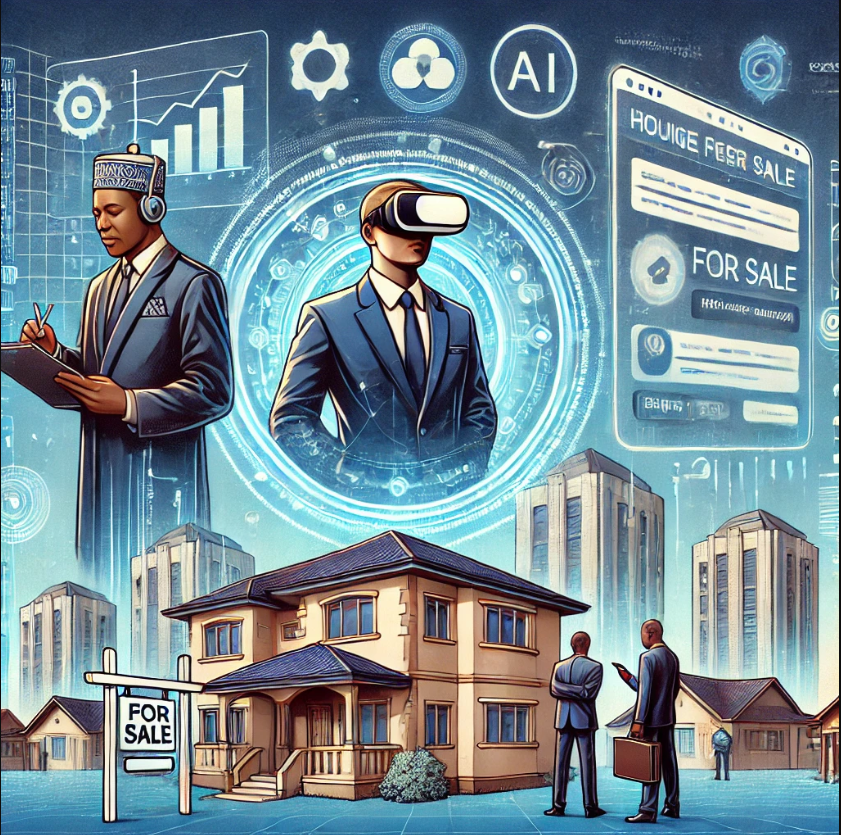Can Technology Replace Real Estate Agents in Nigeria?
In the past decade, technology has transformed nearly every industry, from retail to banking, and the real estate sector has not been left behind. Globally, tech-driven solutions are redefining how properties are bought, sold, and rented, with innovations like virtual tours, artificial intelligence (AI), blockchain, and online marketplaces leading the charge. The natural question that arises is whether technology will eventually replace real estate agents, particularly in Nigeria, where the property market still faces significant structural challenges.
While technology is revolutionizing the way property transactions are conducted in Nigeria, the role of real estate agents remains critical. Let’s explore why technology may not completely replace real estate agents anytime soon, but rather complement and reshape their roles.
The Nigerian Real Estate Landscape
The real estate market in Nigeria presents unique dynamics. Although urbanization is driving an increasing demand for properties, the industry is still largely informal. Many property transactions involve face-to-face negotiations, trust-based relationships, and personalized service—areas where technology has yet to fully bridge the gap. In addition, issues like property fraud, land disputes, and opaque pricing structures make it difficult for a fully automated system to succeed without human oversight.
For most Nigerians, buying or selling property is one of the most significant financial decisions of their lives, making trust and personalized guidance essential. Despite the rise of property listing websites and mobile apps, real estate agents still play a pivotal role in handling complexities such as title verification, site visits, and legal processes.
How Technology is Disrupting the Industry
There's no denying that technology is reshaping the Nigerian real estate industry in many ways. Online property portals such as PropertyPro, Private Property, and Jiji have made it easier for potential buyers and sellers to connect. These platforms provide access to listings, helping users to filter options based on location, price, and type of property.
Virtual tours, 3D walkthroughs, and drone videos are also gaining traction, allowing prospective buyers to "visit" properties from the comfort of their homes. Furthermore, digital payments and smart contracts powered by blockchain are gradually simplifying the payment and documentation processes, reducing the risk of fraud.
However, these technological solutions are more tools that assist in the process rather than replacements for real estate agents. They enhance transparency, efficiency, and convenience, but they cannot fully replicate the nuanced, human aspects of real estate transactions.
The Human Element: Why Real Estate Agents are Still Indispensable
Buying or selling a home is an emotional experience, often involving intricate negotiations and an understanding of the local market dynamics. In Nigeria, real estate agents often act as intermediaries between buyers and sellers, resolving disputes, verifying property ownership, and offering professional advice on market trends.
Moreover, the informal nature of Nigeria’s real estate sector means that relationships and trust play a vital role. Many transactions are based on personal connections, with agents having deep knowledge of local markets, hidden opportunities, and available properties that may not even be listed online. They often know the history of a particular property, the potential risks involved, and how to navigate the complex regulatory landscape.
In a market where property fraud is rampant, the role of the real estate agent as a trusted advisor cannot be overstated. Even as tech tools provide valuable support, Nigerians typically rely on agents to help them avoid legal pitfalls, ensure that transactions are legitimate, and ensure the correct documentation is filed.
A Hybrid Future: Technology and Real Estate Agents Working Together
Instead of viewing technology as a threat to real estate agents, the future will likely be one where technology and agents work hand in hand. In this hybrid model, technology serves to streamline the transaction process, providing greater transparency and efficiency, while agents continue to offer their personalized services, local expertise, and human touch.
Technology can significantly reduce the time spent on administrative tasks like scheduling viewings, handling inquiries, and processing payments. By automating these aspects, agents can focus on providing more strategic advice and personalized service, thereby enhancing the client experience.
For instance, blockchain can simplify property transfers, but someone will still need to ensure the legal and regulatory compliance of the transaction. Virtual tours may give buyers a preview of the property, but nothing beats an in-person inspection with a knowledgeable agent who can point out potential issues that a virtual experience may miss.
Conclusion: Augmentation, Not Replacement
The Nigerian real estate industry is at a crossroads where technology offers tremendous potential for growth and efficiency. However, for the foreseeable future, it seems unlikely that technology will completely replace real estate agents. The nuances of the Nigerian market, the need for personal relationships, and the complexities of property transactions make real estate agents an indispensable part of the process.
Instead of being replaced, real estate agents in Nigeria should embrace technology as a tool to enhance their services, improve customer satisfaction, and reduce the challenges that have long plagued the industry. In this way, both technology and human expertise can coexist to create a more transparent, efficient, and trustworthy real estate ecosystem.

